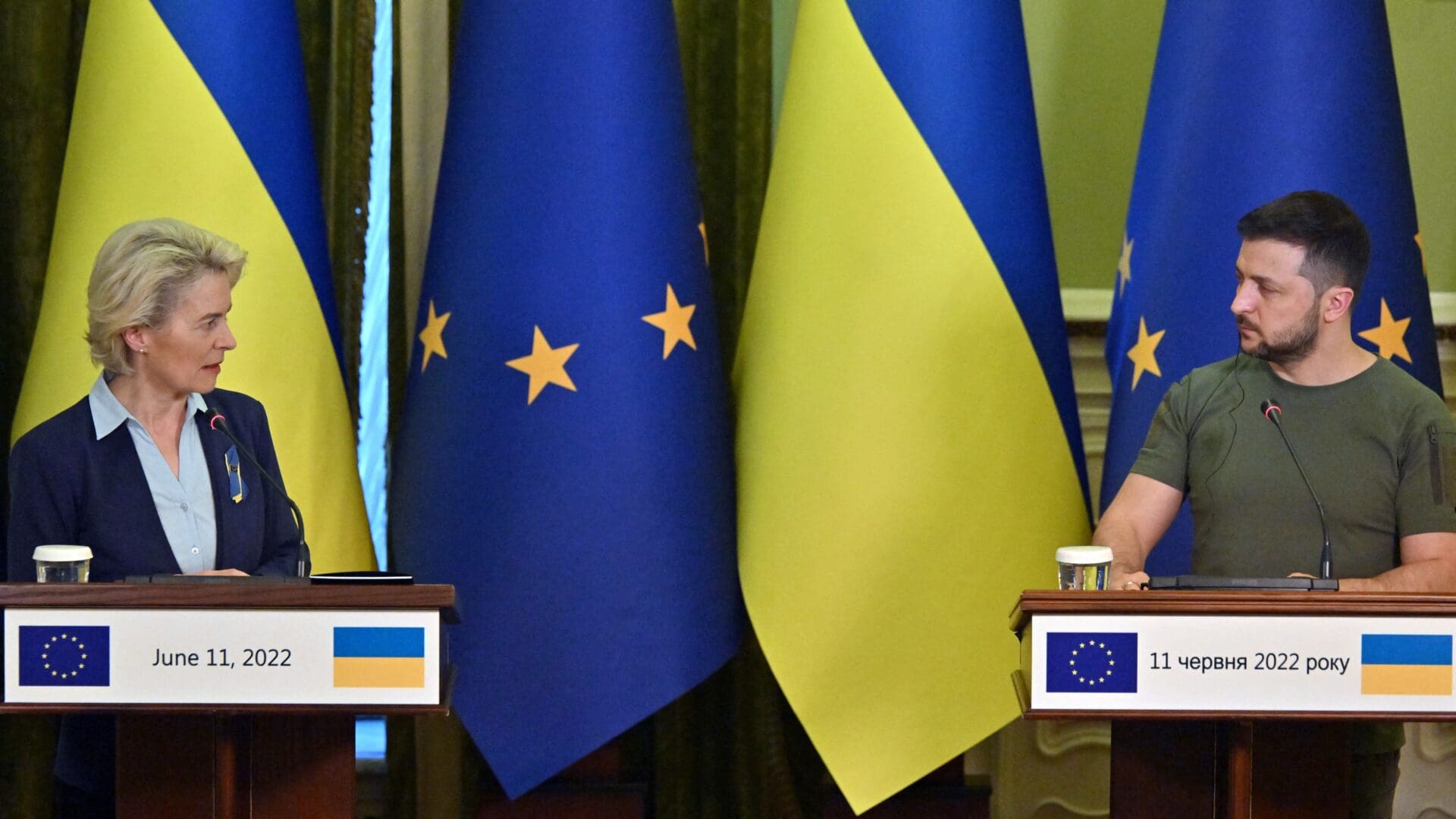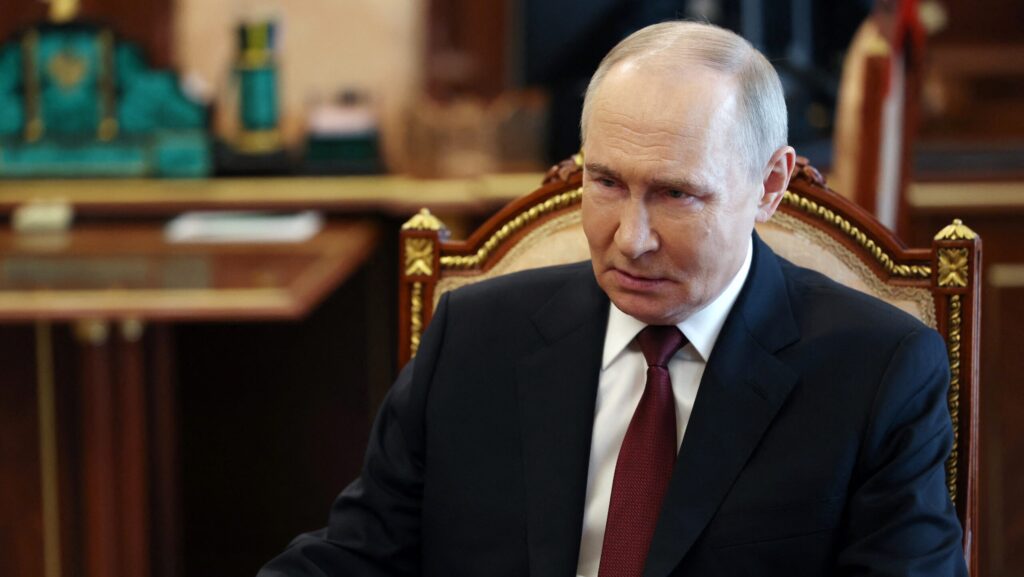‘I believe that now President Zelenskyy must understand for himself that he will never be president again, that this is only one term that he has now. He must realize that he is politically dead. And now he has to make decisions not that will give him the opportunity to be re-elected in the next election or that will support his ratings, but those that have the opportunity to save this state.’
The quoted statement is not from a Ukrainian opposition leader who fled to Russia, nor is it from a Russian propagandist. Roman Kostenko, Secretary of the Committee on National Security, Defence, and Intelligence of the Ukrainian Parliament, voiced his dissatisfaction with the decisions of the Ukrainian political leadership in an interview with NV Radio that you can watch on YouTube.
The tension between the military and political leadership is not new; it has been reported that
Chief of the Ukrainian General Staff Valery Zaluzhny and Volodymyr Zelensky are constantly at odds.
The former blames the political leadership for the failure of the Ukrainian counter-offensive. The primary criticism he has formulated, according to mostly anonymous military sources, is that a series of wrong decisions were made in disregard of military realities. The most striking example of this is the months-long defence of Bakhmut, a settlement in Eastern Ukraine with no strategic importance to justify the significant Ukrainian losses suffered during the siege.
Tensions had already begun to escalate in the autumn of 2023, but Kostenko’s remarks, coming from a colonel in the Ukrainian Security Service, have elevated the conflict between the military and political leadership to a new level. I think we can all agree that labelling the president of a country at war as a ‘political corpse’ is not a positive development. For Zelenskyy, this statement is particularly ominous for his future. There is no doubt that if the disagreements are not resolved internally, Zelenskyy’s days are numbered.
The only question that remains is how much situational awareness the Ukrainian president possesses,
that is, whether he recognizes that he has indeed become a political corpse.
In the best-case scenario, Zelenskyy could still act in time and decide to step down as president voluntarily. Worse outcomes also loom over the Ukrainian leader: considering historical precedents, a coup or assassination attempt cannot be ruled out. This is especially true if he persists in failing to demonstrate military success, and tensions among military leaders escalate due to their frustration with the inability to assert their influence over the political leadership.
And who is to blame for the seemingly inevitable downfall of Zelenskyy? If we seek a simple answer, we could say the president himself. In February 2022, Zelenskyy made a decisive and heroic decision: he did not flee in the first days of the Russian invasion. Like a true leader, he did not abandon his beleaguered people. This was undeniably a brave and responsible choice on his part.
But why did Zelenskyy choose to do that?
Among other factors, it was because the leading powers in NATO—the United States and the United Kingdom—
promised to stand by Ukraine until the end and support Kyiv in achieving ultimate victory over Moscow.
Subsequently, military and financial aid began to flow, with Western countries supplying arms and military equipment to Ukraine at an unprecedented rate in history. While they did provide assistance, Washington knew that the quantity of weapons given to Kyiv would not be sufficient for the promised victory, but rather just enough to create a stalemate. This is clearly illustrated by the dynamics of the decision to supply increasingly advanced military technology. For months, Washington rejected Ukraine’s requests for Western tanks and fighters, and in the case of the F–16s, even prohibited its allies from providing Kyiv with these US-developed systems. The US consistently chose to deliver the requested weapons at a point when it was just too late. And this was not by coincidence.
Zelenskyy, of course, sensed this and turned to the West with progressively more aggressive and assertive rhetoric. The Ukrainian president is well aware that without their support, his days are numbered. Yet, he has every right to feel ‘betrayed’ by the promises made at the beginning of the war.
Since then, the situation in Washington has evolved. In the lead-up to the presidential elections, reports from POLITICO suggest that the Biden administration is shifting its strategy on Ukraine, no longer prioritizing a victory for Kyiv—as it never has. The US legislature is unable to reach a deal on further military and financial aid to Ukraine, with Republicans rightly unwilling to continue pouring unchecked funds into the Ukrainian black hole.
With Europe’s economy and competitiveness battered by two years of war and sanctions,
European citizens also have every right to feel betrayed.
The decoupling of the European economy from the Russian one and the replacement of inexpensive Russian energy, which were the foundation of European competitiveness, with other, more costly sources, will have consequences that may take decades to recover from. Not to mention the rebuilding of diplomatic relations. Make no mistake, Russia’s invasion is utterly reprehensible and unjustifiable. At the same time, the European response to it, rooted in the American lie, is equally unjustifiable to the European people.
But what are European leaders doing in this changed situation? One might naively think that they are reassessing their strategy in light of the realities of the battlefield, establishing realistic and achievable goals, and, most importantly, making Kyiv understand that this war cannot be won.
So, what happens instead? The majority of European countries seem to have blood in their eyes and are pouring more and more money and weapons into Ukraine. German Chancellor Olaf Scholz this week called on the allies to step up their efforts to support Kyiv. Belgian Prime Minister Alexander de Croo said the EU would increase its support for Ukraine and stand by the war-torn country to the end. More recently, British Prime Minister Rishi Sunak visited Kyiv, where he announced $2.5 billion in military aid for Ukraine this year.
While there are voices calling for peace talks, as Hungary has been doing since February 2022, they remain few compared to the pro-war camp.
European leaders, who are generally slow to make key decisions, adapting to circumstances rather than shaping them, appear to be persisting in their failed policy on Ukraine: betting on a dead horse.
Related articles:








